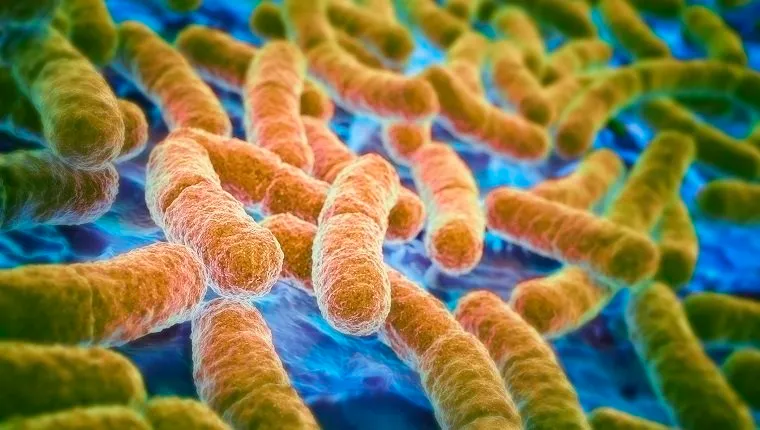E. coli, short for Escherichia coli, is a kind of bacteria found in the lower intestines of dogs and other mammals. Usually it’s benign, but symptoms can appear in dogs when the bacteria concentration is too high and results in a disease called colibacillosis or E. coli infection.
Symptoms can be serious in canines if it goes untreated, and it can lead to blood poisoning. It mostly affects very young puppies but can be found in dogs of any age.
If you spot the symptoms of an E. coli infection, contact your veterinarian immediately. Here’s what you need to know about the symptoms, causes, and treatments for E. coli in dogs.
Symptoms Of E. Coli Infection In Dogs
Symptoms of E. coli infection in dogs can vary.
In newborn puppies, blood poisoning and organ failure can occur. In these cases, coldness, weakness, and frequent diarrhea are common symptoms, and you should consult your vet right away.
Dogs of any age may experience the following symptoms with an E. coli infection:
- Diarrhea
- Vomiting
- Lack of appetite
- Dehydration
- Depression
- Weakness or lethargy
- Rapid heart rate
- Cold skin or low body temperature
- Bluish color in the gums, nostrils, ears, lips, or anus due to lack of oxygenation in red blood cells
In elderly dogs, other complications can occur. Seniors may experience bladder, mammary gland, womb, or kidney infections.
Causes Of E. Coli Infection In Dogs
The most common cause of E. coli infection in dogs is puppies being born to unhealthy mothers. When puppies receive contaminated milk from a mother dog, they can become infected.
Also, if puppies do not receive enough milk from their mothers, which transfers antibodies that prevent infection, they may also be left with compromised immune systems and experience more infections.
Factors that affect the health of a puppy include poor nutrition in the mother, an unsanitary birthing environment, mammary gland infection, and prolonged birth.
Contact with other infected animals, including bedding that has been used by infected dogs, also make E. coli infection more likely, as well as making it common for other infections, like parvovirus, to appear at the same time.
Though it’s less common, infection can occur through exposure to contaminated food or water. This is more likely in kennels that do not properly clean common facility areas. Feeding a dog a raw diet may also increase this risk.
It’s important to wash food and water bowls thoroughly, keep infected dogs separate and quarantined, and wash your hands after handling food or dogs.
Treatment For E. Coli Infection in Dogs
Most dogs, puppies especially, will need hospitalization for treatment of an E. coli infection.
Treatment will likely include intravenous fluids to restore hydration and electrolytes lost through diarrhea. The vet may administer glucose to treat the diarrhea symptoms.
The vet may also administer antibiotics like ceftiofur, cephalexin, and cefpodoxime to treat the bacterial infection.
Because puppies don’t have fully developed immune systems, they’re in extreme danger. Often, treatment is unsuccessful, and untreated puppies have a very high mortality rate. This is why it is important to treat the condition early and aggressively, which can improve a puppy’s chances of survival.
Creating a sterile environment for the mother dog and the puppy is essential in preventing an E. coli infection. It’s also important that the puppy receive healthy milk that’s rich in antibodies immediately after birth.
With a birthing environment that is properly sanitized and not crowded, instances of E. coli infection are reduced.
Do you take steps to prevent bacterial infections in your dog? Do you have tips to keep dogs healthy? Let us know in the comments below!

